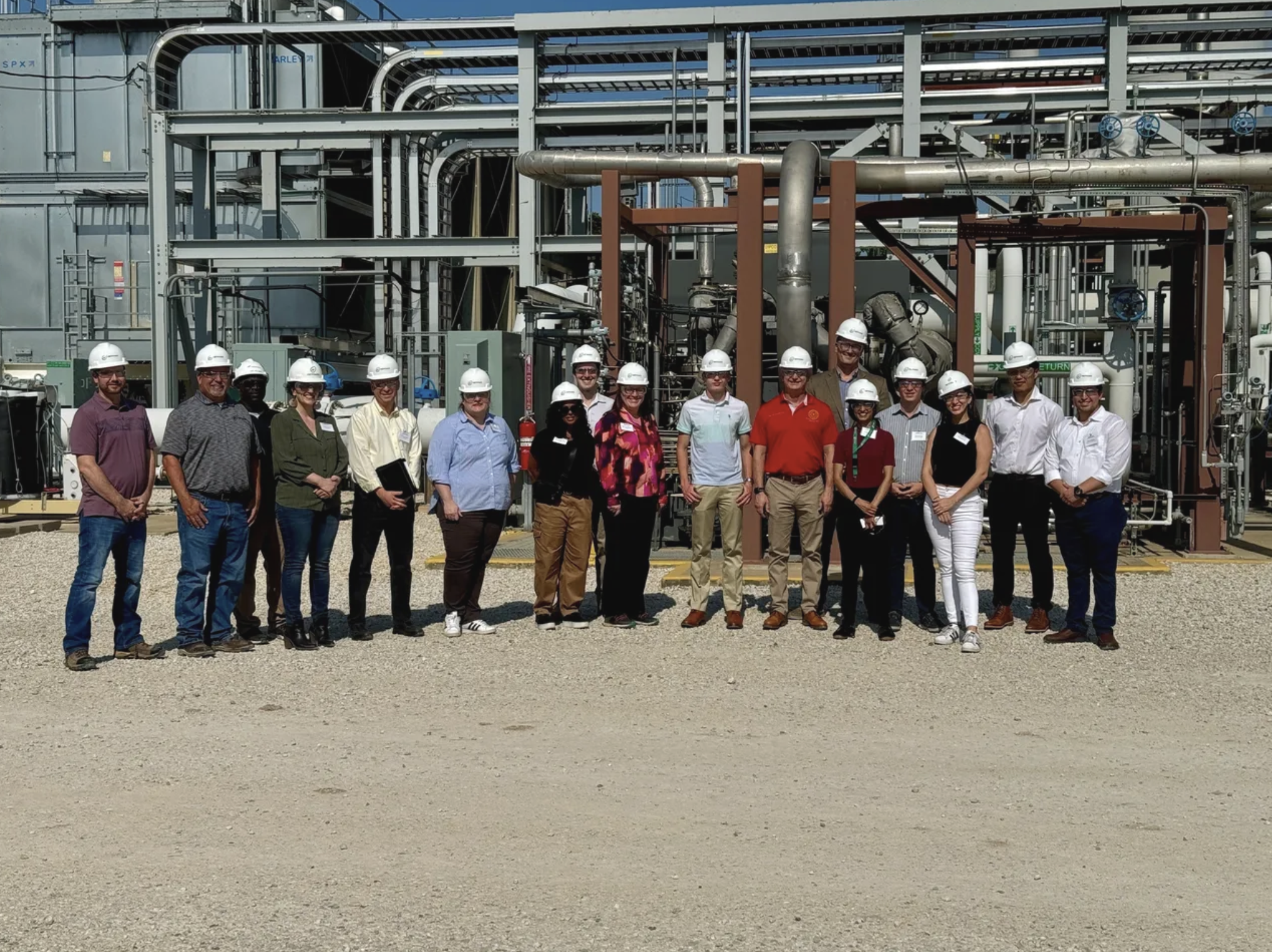Experiencing Texas’ Energy Future Firsthand
Participants of the Houston Energy Tour
Co-authored by Dr. Tom Oliverson, Texas State Representative District 130 (R) and Penny Morales Shaw, Texas State Representative District 148 (D)
Imagine waking up in the sweltering Texas heat, only to find that a powerful storm has left your neighborhood without power for days. This recent reality for thousands of Texans highlights a critical truth: our energy infrastructure is not just a convenience, but a lifeline. As state representatives, we’ve seen firsthand the profound impact that energy has on our daily lives, which is why we eagerly joined the first of several Energy Tours organized by PowerHouse Texas and the Texas Energy & Climate Caucus. Our journey began in Houston, the global energy capital, where we explored cutting-edge advancements in energy technology and pressing challenges facing our state’s energy future.
We were eager to host the Energy Tour, namely because as a representatives of the energy capital, it’s important to lead the charge for energy innovation and to recognize thoughtful industry leaders who are investing in a brighter energy future.The energy industry is the backbone of Texas, fueling our economy, creating jobs, funding our education system, and ensuring our state remains a leader on the global stage. Its innovations drive economic growth and prosperity for all Texans.
Over two immersive days, we joined 20 legislators, staff, and academic experts to learn from Houston’s energy and environmental leaders. We delved into the ambitious HyVelocity Hub project, one of only seven regional hydrogen hubs selected by the U.S. Department of Energy. The HyVelocity Hub is a collaborative of nearly 100 non-profit research organizations, academics, and leading energy companies working to advance a cleaner hydrogen ecosystem in Texas, Southwest Louisiana, and along the U.S. Gulf Coast. HyVelocity received the largest funding award, a total of $1.2 billion, to connect more than 1,000 miles of hydrogen pipelines, 48 hydrogen production facilities, and dozens of hydrogen end-use applications across Texas and Southwest Louisiana. The hub is also planning for large-scale hydrogen production through both natural gas with carbon capture and renewables-powered electrolysis. Experts from the Center for Houston's Future, GTI Energy, the Houston Area Research Center, and the Clean Air Task Force shed light on the Lone Star State's burgeoning hydrogen economy and its vast potential.
While large investments are being made to develop clean hydrogen production as a fuel of the future, hydrogen is more water-intensive to produce than other fuels, and in a water-stressed state like Texas, it is important to plan for future water needs and alternative supplies. Policies including a wide application of nature-based solutions to reduce impervious cover and overland flow are needed to protect our water supplies.
Port Houston is the busiest port in the United States by tonnage—both foreign and overall— and one of the busiest in the world. It's also the number one port in the country for vessel transits, handling around 50 deep-water vessels per day. Our tour of the Houston Ship Channel underscored the port's efforts towards electrification, clean fuels, and environmental stewardship. We were particularly impressed by Air Alliance Houston's work in raising awareness about the impacts of particulate matter pollution. The Environmental Protection Agency (EPA) has tightened standards on particulate matter, and now Texas has 10 counties, including Harris County, violating the EPA particulate matter standards for the first time.
Several counties with high particulate matter do not have a speciation monitor, which characterizes submicron particulate matter, allowing counties to better understand what is in the particulate matter to ensure clean air for Texans. There is an urgent need for speciation monitoring and targeted control strategies. The Texas Commission on Environmental Quality (TCEQ) should have a rigorous state implementation plan and set up speciation monitors in key counties that lack them. Additional monitors are also needed in the Houston region, where our sources of particulate matter are varied and complex.
Another highlight of the tour was our visit to NET Power's testing facility in La Porte, where we witnessed a groundbreaking technology for carbon capture in action. NET Power's patented oxy-combustion process generates electricity from natural gas while capturing carbon emissions, showcasing the state's innovative spirit in tackling environmental challenges.
The Texas General Land Office owns nine miles of land offshore from Texas. For most coastal states, the extent of their State Jurisdiction is three nautical miles (nm) from the coastline. Texas, Florida, and Puerto Rico are exceptions to this, with jurisdiction extending nine nm from shore. This presents a unique opportunity for Texas to access commercial offshore areas for carbon storage while using well-researched practices to protect the native marine-life ecosystems. Royalties for any activities in this area would benefit the Permanent School Fund, and consequently, dramatically lessen or even eliminate property taxes as a source of school funding.
As we reflect on our tour and the wealth of knowledge we gained, it is clear that Texas stands at a pivotal crossroads. The challenges we face are substantial, from addressing water-intensive hydrogen production to combating particulate matter pollution. Yet, the opportunities are equally significant. By leveraging innovative technologies like carbon capture, Texas can continue to lead our energy future. The collaborative efforts of legislators, industry leaders, and environmental advocates will be crucial in this journey. Our experience on the Energy Tour has reinforced our commitment to ensuring that Texas not only remains an energy powerhouse but also evolves into a model of resiliency. We are dedicated to embracing these challenges head-on, fostering a future where economic growth and environmental stewardship go hand-in-hand for the benefit of all Texans.

